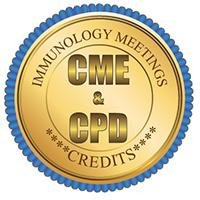Lu Wen
University of Michigan Comprehensive Cancer Center, USA
Title: Adoptively transferred B cells directly kill tumor cells via the CXCR4/CXCL12 and perforin pathways
Biography
Biography: Lu Wen
Abstract
Over the years, the role of B cells in the host immune response to malignancy has been overshadowed by our focus on T cells. The role played by B cells in cancer immunology is complex and controversial. The observation made by our lab that activated B cells alone can mediate tumor regression in the adoptive immunotherapy of solid tumors is innovative. One novel mechanism by which activated B cells mediate tumor regression is via direct tumor cell cytotoxicity in the absence of antibodies. We reported that antitumor B cells directly kill tumor cells via the Fas/FasL pathway and are regulated by IL-10. In this study, we defined additional mechanisms involved in B cell antitumor immunity. Administration of IL-2 significantly augmented the therapeutic efficacy of adoptively transferred tumor-draining lymph node (TDLN) B cells which express IL-2R. Furthermore, we detected CXCR4 expression on 4T1 TDLN B cells, and 4T1 tumor cells produced its ligand CXCL12. Transwell experiments demonstrated the chemotraction of CXCR4-expressing 4T1 TDLN B cells towards CXCL12-producing 4T1 cells. Blockade of CXCR4 using a CXCR4-specific inhibitor, AMD3100, significantly reduced the killing of 4T1 tumor cells by 4T1 TDLN B cells. Blockade of FasL and CXCR4 concurrently inhibited B cell-mediated direct killing of tumor cells in an additive manner, indicating that both Fas/FasL and CXCL12/CXCR4 pathways are involved in the direct killing of 4T1 cells by 4T1 TDLN B cells. TDLN B cells produced perforin. Additional experiments showed that effector B cells could directly kill tumor cells via the Fas/FasL and CXCR4/CXCL12 pathways as well as perforin. These findings underscore the diversity of function by which B cells can play an important role in the host immune response to tumor, and clearly indicated that transferred effector B cells can act independently of T cells in causing tumor destruction in adoptive immunotherapy

